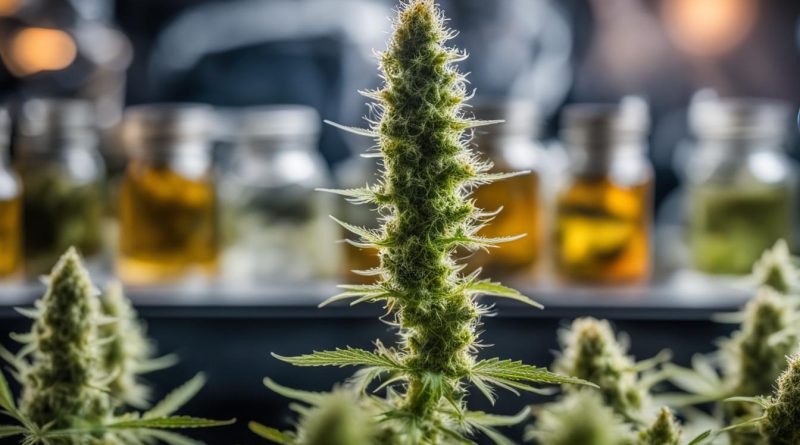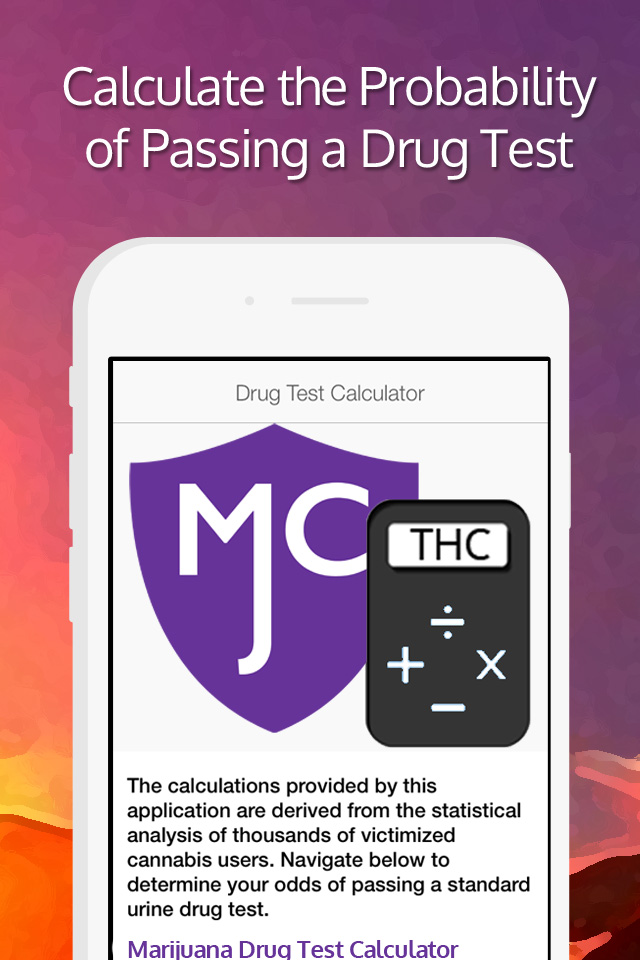The Science Behind Cannabis
Welcome to our comprehensive exploration of the fascinating science behind cannabis. In this article, we will delve into the intricate workings of this plant and its impact on our bodies and minds. By understanding the science, we can gain valuable insights into the therapeutic potential, as well as the risks, associated with cannabis use.
Key Takeaways:
- THC, the main psychoactive compound in cannabis, interacts with cannabinoid receptors in the brain, affecting mental and physical functions.
- The endocannabinoid system plays a critical role in the nervous system’s normal functioning.
- THC can impair thinking, memory, coordination, and reaction time.
- Cannabis has shown therapeutic potential in certain medical conditions, but more research is needed.
- Cannabis research faces challenges due to federal illegality and state laws.
THC and Its Effects on the Brain
When it comes to cannabis, the main psychoactive compound that catches our attention is THC, or delta-9-tetrahydrocannabinol. THC has a chemical structure that closely resembles that of anandamide, a brain chemical involved in various mental and physical functions. This similarity allows THC to interact with cannabinoid receptors in the brain, disrupting normal brain communication.
The interaction between THC and cannabinoid receptors can have significant effects on our cognitive abilities. Research has shown that THC can impair thinking, memory, coordination, and reaction time. This can make learning and performing tasks more challenging. Additionally, THC can activate the brain’s reward system, leading to pleasurable sensations and potentially contributing to its addictive properties.
Understanding how THC affects the brain’s communication is crucial for comprehending the potential risks associated with cannabis use. By disrupting normal brain functioning, THC can have a significant impact on our cognitive abilities and overall well-being.
The Effects of THC on the Brain
| Impaired Thinking | Memory Problems | Coordination and Reaction Time | Reward System Activation |
|---|---|---|---|
| THC can impair our ability to think clearly and make sound decisions. | THC can affect our memory and make it more challenging to recall information. | THC can hinder coordination and slow down our reaction time, making tasks that require physical dexterity more difficult. | THC activates the brain’s reward system, contributing to the pleasurable sensations and potentially addictive properties of cannabis. |
While THC may have its drawbacks, it’s important to note that the effects can vary from person to person and depend on factors such as dosage, frequency of use, and individual sensitivity. More research is needed to fully understand the complexities of THC’s effects on the brain and identify potential strategies for minimizing the risks associated with its use.
The Endocannabinoid System and its Role
In order to understand the effects of cannabis on the brain, it is important to first explore the role of the endocannabinoid system. This neural communication network plays a crucial role in the functioning of the nervous system, using cannabinoid neurotransmitters to send chemical messages between nerve cells. The endocannabinoid system influences various brain areas that are responsible for pleasure, memory, thinking, movement, coordination, and sensory perception.
At the core of the endocannabinoid system are two key neurotransmitters: anandamide and 2-arachidonoylglycerol (2-AG). These neurotransmitters bind to cannabinoid receptors found throughout the brain and body, influencing a wide range of physiological processes. The endocannabinoid system helps maintain balance and homeostasis in the body, regulating functions such as pain, appetite, mood, and immune response.
The endocannabinoid system and its intricate network of neurotransmitters and receptors play a critical role in normal nervous system functioning. When cannabis is consumed, its active compounds, such as THC, interact with the endocannabinoid system and disrupt the natural balance of neurotransmitter signaling. This disruption can have profound effects on mental and physical functions, leading to the impairments often associated with cannabis use.
The Role of Neurotransmitters in the Endocannabinoid System
Neurotransmitters are chemical messengers that allow nerve cells to communicate with one another. In the endocannabinoid system, the neurotransmitters anandamide and 2-AG act as signaling molecules, binding to cannabinoid receptors and influencing the activity of nearby neurons. Anandamide, often referred to as the “bliss molecule,” is structurally similar to THC and plays a crucial role in regulating mood, pain, and appetite. 2-AG, on the other hand, is involved in processes such as immune response and neuroprotection.
When anandamide or 2-AG bind to cannabinoid receptors, they can have both inhibitory and excitatory effects on neighboring neurons. This modulation of neurotransmitter activity helps maintain the delicate balance of the endocannabinoid system and ensure proper functioning of the nervous system. However, when THC or other cannabinoids from cannabis are introduced, they can disrupt this balance and alter normal brain communication, resulting in the various effects observed with cannabis use.
| Neurotransmitter | Function |
|---|---|
| Anandamide | Regulates mood, pain, and appetite |
| 2-AG | Involved in immune response and neuroprotection |
Understanding the intricate workings of the endocannabinoid system and how cannabinoids like THC interact with it is essential for comprehending the effects of cannabis on the brain. Further research is needed to fully unravel the complexities of this system and its role in maintaining homeostasis in the body. By gaining a deeper understanding of the endocannabinoid system, we can continue to unlock the potential therapeutic benefits of cannabis while also being aware of its potential risks and limitations.

The Medical Potential of Cannabis
Medical cannabis has gained significant attention in recent years due to its potential therapeutic benefits. The plant contains numerous compounds, including THC and CBD, which have shown promise in treating various medical conditions. CBD, in particular, has been FDA-approved for the treatment of anorexia, nausea, vomiting, and seizures in certain patients.
Although there is limited scientific data available, anecdotal evidence and preliminary research suggest that medical cannabis may also be beneficial for conditions such as chronic pain, multiple sclerosis, epilepsy, and cancer-related symptoms. CBD, which does not produce the psychoactive effects associated with THC, is considered especially promising for its potential therapeutic applications.
Despite these findings, it is important to note that more research is needed to fully understand the medical potential of cannabis. The current lack of scientific data makes it challenging to evaluate the effectiveness and safety of different cannabis products. However, ongoing research efforts aim to address these knowledge gaps and provide a clearer understanding of the benefits and risks associated with medical cannabis use.
| Condition | Treatment Potential |
|---|---|
| Chronic Pain | Preliminary studies suggest that medical cannabis may help alleviate chronic pain, especially when other treatments have been ineffective. |
| Multiple Sclerosis | Studies indicate that cannabis-based medications, such as nabiximols, may improve muscle spasticity and overall quality of life in individuals with multiple sclerosis. |
| Epilepsy | CBD has shown promise in reducing the frequency and severity of seizures in individuals with certain types of epilepsy. |
| Cancer-related Symptoms | Medical cannabis, particularly THC, may help alleviate symptoms such as nausea, vomiting, and loss of appetite associated with cancer treatment. |
While medical cannabis holds potential, it is crucial to consult with healthcare professionals and adhere to state laws and regulations regarding its use. Additionally, further research is necessary to determine optimal dosage, potential side effects, and interactions with other medications. As our understanding of cannabis continues to evolve, evidence-based decision-making will be essential to guide the safe and effective use of medical cannabis.
Challenges in Cannabis Research
Research on cannabis poses numerous challenges due to its federal illegality and conflicting state laws, making it difficult to conduct comprehensive studies. The lack of legal recognition also limits funding opportunities and hampers the ability to obtain necessary research permits and licenses. These legal hurdles discourage scientists from exploring the therapeutic potential of cannabis and hinder the collection of scientific data.
The controlled nature of research on cannabis is another challenge. Randomized controlled trials (RCTs), considered the gold standard for studying medical interventions, are difficult to conduct due to legal restrictions and ethical considerations. RCTs are essential for providing robust evidence and establishing causality between cannabis use and its effects.
Furthermore, the complex nature of cannabis as a plant with various strains and cannabinoid compositions adds another layer of complexity to research. Standardization of cannabis products is crucial to ensure accurate data collection and comparison across studies. Without standardized products, it becomes challenging to draw meaningful conclusions from research findings.
Challenges in Cannabis Research:
- Lack of legal recognition and funding opportunities
- Difficulty in obtaining research permits and licenses
- Legal restrictions on conducting randomized controlled trials
- Complexity of cannabis as a plant with variable compositions
- Lack of standardized cannabis products
Despite these challenges, ongoing research efforts are focused on understanding different types of cannabis, its effects on pain relief, and the interaction between cannabis and other substances like nicotine. Collaboration between researchers, policymakers, and the medical community is crucial to overcome these hurdles and further explore the therapeutic potential of cannabis.

Cannabis and Cognitive Function
When it comes to cannabis and cognitive function, the effects can vary depending on factors such as frequency of use, dosage, and age of onset. Heavy recreational marijuana use, especially at an early age, has been associated with negative impacts on cognitive function. Neuroimaging studies have shown changes in brain structure, particularly in the frontal cortex, which is responsible for executive functions like decision-making and problem-solving.
Research has shown that early-onset cannabis use can lead to cognitive impairments in tasks involving the frontal cortex. These impairments can manifest as difficulties with attention, memory, and information processing. However, it is important to note that these effects may not be permanent, as the brain has the ability to recover and adapt.
On the other hand, research on the medical use of cannabis has demonstrated promising results in improving cognitive function. Patients using medical cannabis have reported enhanced cognitive performance and an improved quality of life. These findings suggest that the effects of cannabis on cognitive function are complex and may be influenced by various factors.

In summary, cannabis can have both positive and negative impacts on cognitive function. While heavy recreational marijuana use at an early age may lead to cognitive impairments, medical cannabis has shown potential in improving cognitive function in certain patient populations. Further research is needed to better understand the underlying mechanisms and long-term effects of cannabis use on cognitive function, as well as to determine the optimal use of cannabis as a medical treatment.
Unanswered Questions and the Need for Research
While medical cannabis has shown promising potential in certain conditions, there are still many unanswered questions that require further research. Understanding the long-term impact of medical cannabis is crucial to ensure safe and effective use. Additionally, determining the appropriate dosage and form of cannabis for different conditions is essential for optimizing patient outcomes.
A key area that requires more research is the specific therapeutic benefits of CBD, one of the main cannabinoids found in cannabis. Although there is anecdotal evidence and early studies suggesting its potential in managing various symptoms, such as pain and anxiety, more rigorous scientific investigations are needed to establish its efficacy and safety profiles.
Furthermore, the composition and quality of cannabis products on the market remain uncertain. Variations in cultivation, extraction methods, and manufacturing processes can result in significant differences in the concentration and purity of cannabinoids. Robust research is necessary to establish standardized protocols for producing consistent and reliable cannabis-based medications.
Research efforts should also focus on understanding the interaction between medical cannabis and other medications. This is particularly important for patients who are taking multiple drugs to manage their conditions. Assessing the potential drug interactions and the impact on efficacy and safety is crucial to ensure optimal treatment outcomes.
| Research Areas | Key Questions |
|---|---|
| Long-term impact | What are the long-term effects of medical cannabis on physical and mental health? |
| Dosage and administration | What is the optimal dosage and form of cannabis for different medical conditions? |
| CBD therapeutic benefits | What are the specific therapeutic benefits of CBD in managing different symptoms? |
| Product quality and consistency | How can we ensure consistent and standardized cannabis-based medications? |
| Interaction with other medications | What are the potential drug interactions of medical cannabis with other medications? |
Addressing these unanswered questions through rigorous medical cannabis research will enable healthcare professionals to make evidence-based decisions and recommendations regarding its use. Continued scientific exploration is crucial to unlock the full therapeutic potential of medical cannabis and to ensure the safety and well-being of patients.

The Importance of Clear Policy and Regulation
When it comes to cannabis, clear policy and regulation are crucial to distinguish between recreational and medical use. With the increasing legalization of cannabis in various states, it is essential to establish evidence-based decision-making processes that guide the evaluation and approval of cannabis as a medication. However, the current landscape of cannabis legislation is complex and inconsistent, leading to confusion and hindering scientific progress.
Cannabis legislation should prioritize the differentiation between recreational and medical use. By implementing well-defined regulations, we can ensure that individuals who rely on cannabis for medical purposes have access to safe and effective products. Moreover, clear policies can help prevent misuse and abuse of cannabis, especially among recreational users.
By adopting evidence-based decision-making, policymakers can evaluate the potential benefits and risks associated with cannabis use. This approach requires robust scientific research and data analysis to inform the development of regulations and guidelines. By staying updated on the latest research findings, policymakers can make informed decisions that prioritize public health and safety.
Evidence-based Decision-making
Creating a framework based on evidence-based decision-making is crucial for optimizing the use of cannabis in both recreational and medical contexts. This approach involves gathering and analyzing scientific data on the effects of cannabis, including its potential therapeutic benefits, adverse effects, and interactions with other medications. By leveraging this knowledge, policymakers can establish regulations that maximize the benefits of cannabis while minimizing potential risks.
In summary, clear policy and regulation are necessary to navigate the complex landscape of cannabis legislation. By differentiating between recreational and medical use and embracing evidence-based decision-making, we can ensure the safe and effective use of cannabis, bringing us closer to harnessing its full potential for the well-being of individuals and communities.
Conclusion
The science behind cannabis is a constantly evolving field, and ongoing research is shedding light on its effects on the brain and its potential for medical use. We have learned that THC, the main psychoactive compound in cannabis, interacts with cannabinoid receptors in the brain, disrupting normal mental and physical functions. The endocannabinoid system, which utilizes these cannabinoid neurotransmitters, plays a crucial role in the functioning of the nervous system.
While cannabis has shown promise in certain medical conditions, such as treatment for anorexia, nausea, vomiting, and seizures, more research is needed to fully understand its benefits, risks, and the most effective ways to use it. The medical potential of cannabis is an area of great interest, and FDA-approved cannabinoids, like CBD, have already been identified as useful therapeutic agents.
To unlock the full potential of cannabis, it is crucial to address the challenges in research and establish clear policy and regulation. The federal illegality of cannabis makes it difficult to conduct randomized controlled trials, hindering our ability to gather scientific data. Additionally, state laws that restrict the study of cannabis further impede our understanding of its medical properties. By investing in research efforts, we can determine the therapeutic potential, safety, and efficacy of different cannabis products.
To ensure safe and effective use of cannabis, evidence-based decision-making should guide the evaluation and approval of cannabis as a medication. Clear policy and regulation are necessary to differentiate between recreational and medical use, create certainty in the market, and support scientific progress. As we continue to explore the science behind cannabis and its potential in medical applications, we look forward to further advancements and discoveries in this exciting field.
FAQ
What is THC and how does it affect the brain?
THC, the main psychoactive compound in cannabis, has a similar chemical structure to the brain chemical anandamide. This similarity allows THC to interact with cannabinoid receptors in the brain, disrupting normal brain communication. This can lead to impaired thinking, memory problems, and difficulties with coordination and reaction time. THC also activates the brain’s reward system, stimulating the release of dopamine and contributing to its potentially addictive properties.
What is the endocannabinoid system?
The endocannabinoid system is a neural communication network that uses cannabinoid neurotransmitters to send chemical messages between nerve cells in the nervous system. This system influences various brain areas that affect pleasure, memory, thinking, movement, coordination, and sensory perception. Disrupting the endocannabinoid system through the use of cannabis can have profound effects on mental and physical functions.
What is the therapeutic potential of cannabis?
Cannabis and its constituents have shown therapeutic potential in certain medical conditions. The FDA has approved certain cannabinoids, like CBD, to treat anorexia, nausea, vomiting, and seizures in certain patients. However, there is a lack of scientific data to guide the evaluation of cannabis use, and more research is needed to fully understand its medical benefits and risks.
What challenges exist in cannabis research?
Cannabis research faces challenges due to its federal illegality, making it difficult to conduct randomized controlled trials. State laws also hinder research by not allowing scientists to study cannabis. There is a need for more research to determine the therapeutic potential, safety, and efficacy of different cannabis products. Current research efforts are focused on understanding different types of cannabis, its effects on pain relief, and the interaction between cannabis and other substances like nicotine.
How does heavy recreational marijuana use impact cognitive function?
Heavy recreational marijuana use, especially at an early age, can negatively impact cognitive function, especially in tasks involving the frontal cortex. Neuroimaging studies have shown changes in white matter, which affects communication among brain regions, in early-onset cannabis users. However, research on medical cannabis has shown promising results, with patients reporting improved cognitive performance and quality of life.
What unanswered questions remain about medical cannabis?
There is a lack of research on the long-term impact of medical cannabis and the appropriate dosage and form for different conditions. The composition and quality of cannabis products on the market are also uncertain. More research is needed to understand the therapeutic potential of different cannabinoids, the interaction between cannabis and other medications, and the specific benefits for different patient groups.
Why is clear policy and regulation important for cannabis use?
Clear policy and regulation are needed to differentiate between recreational and medical use of cannabis. Evidence-based decision-making should guide the evaluation and approval of cannabis as a medication. The current landscape of cannabis legislation and varying state laws create confusion and hinder scientific progress.
What is the current state of cannabis research?
The science behind cannabis is still evolving, with ongoing research aiming to understand its effects on the brain and its therapeutic potential. While cannabis has shown promise in certain medical conditions, more research is needed to fully understand its benefits, risks, and optimal use. Clear policy and regulation are necessary to ensure evidence-based decision-making and guide the appropriate use of cannabis for medical purposes.













